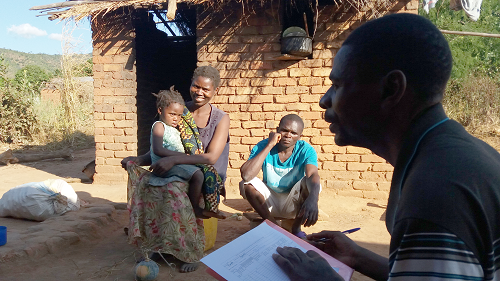IDDO announces new research activities for visceral leishmaniasis
IDDO’s visceral leishmaniasis (VL) collaboration is working on two new projects looking at the treatment of VL.

The first is a systematic review of the literature on design and analysis of antileishmanial clinical efficacy studies, and the second is a systematic review of published studies to estimate the baseline risk of serious adverse events and mortality in patients treated with antileishmanial therapies.
Led by Drs Prabin Dahal and Sauman Singh, this work has involved reviewing studies dating between 1980 and 2018. Data is currently being extracted and analysed with results expected to be published later this year.
Visceral leishmaniasis, also known as kala-azar, is transmitted to humans by bites from infected female phlebotomine sand flies. Symptoms include fever, weight loss, anaemia and it can damage internal organs. If left untreated the fatality rate is high. Globally, it is estimated there are up to 90,000 new cases of VL each year but only up to 45% are reported.
Clinical trials in VL have been conducted for over 100 years and there has been a progressive gain in understanding of the biological factors underpinning antileishmanial drug efficacy. Historically, antileishmanial therapies have been associated with a poor tolerability profile. Currently, there is little information regarding the frequency of the severe adverse events and deaths following antileishmanial chemotherapies.
This research will increase knowledge and understanding of how responses to these treatments have been assessed and measured, also examining their outcome and analysis methodology. Work could lead to improvements in the design of prospective VL clinical studies and will aid understanding of tolerability of these drugs.
Prabin Dahal said: “The first review aims to capture the current practices in design, conduct, analysis, and reporting of results in VL studies in published literature. Several countries in South Asia are currently making progress in eliminating VL under [national] kala-azar elimination programmes.
“The changing epidemiology of the disease demands innovative approaches for defining and measuring drug efficacy and drug effectiveness. The aim of this review is to comprehensively review the existing designs and explore the statistical approaches currently available to optimise the information obtained from field trials.
“The second review was designed to characterise the safety profile following administration of antileishmanial therapies. Data analysis is currently ongoing and the preliminary findings will be presented at the 11th ECTMIH in Liverpool, in September.”
There is still time to shape IDDO’s VL Research Agenda and comment on prioritisation of key questions in VL research that could be answered using the data platform. Comments are open until 5 July 2019.
For more information email vl@iddo.org
